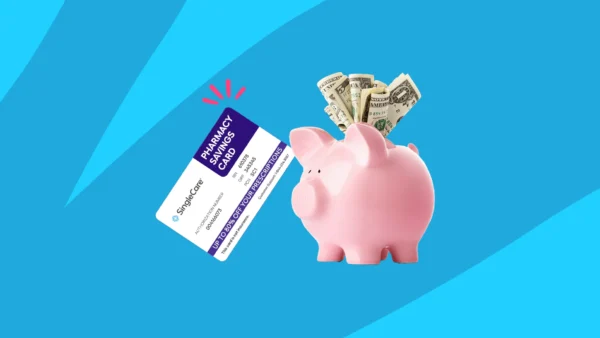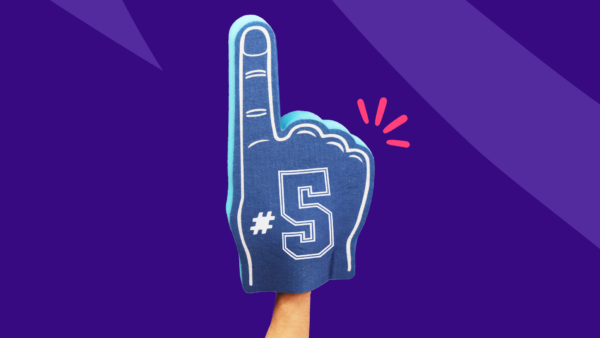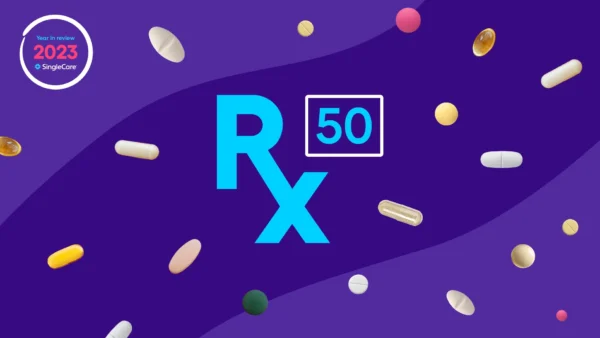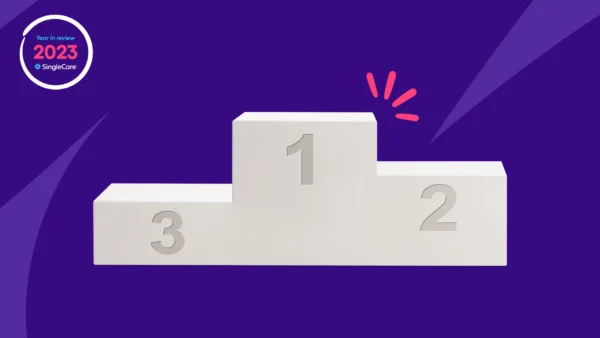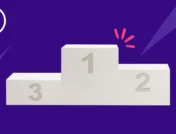There are several scenarios that qualify you for Medicare. The first and most common scenario is when you turn 65 years old. The second scenario is when you’ve been collecting Social Security Disability Insurance (SSDI) for at least 24 months. The third scenario is if you’re diagnosed with End-Stage Renal Disease (ESRD) and are on dialysis or if you’re diagnosed with amyotrophic lateral sclerosis (ALS or Lou Gehrig’s disease).
Who qualifies for Medicare?
Medicare eligibility age
The Medicare-eligible age is 65. Even though you can collect Social Security retirement benefits at 62 years old, you cannot enroll in Medicare until you turn 65 years old unless you’ve been collecting SSDI.
If you’re collecting Social Security retirement benefits or Railroad Retirement benefits, you’ll automatically be enrolled in both Part A (hospital insurance)—unless you don’t qualify for premium-free Part A—and Part B (medical insurance). You’ll receive your Medicare card in the mail around three months before your 65th birthday.
If you’re collecting Social Security benefits and do not want Part B due to having another form of coverage, like employer coverage, you’ll need to complete form CMS-1763. Keep in mind that if you do not have another form of creditable coverage and delay enrolling into Parts A, B, or D (prescription drug coverage), you may face late enrollment penalties.
RELATED: How to avoid the Medicare Part D penalty
Disability
People younger than 65 years old who’ve been collecting Social Security Disability benefits for longer than 24 months are also eligible for Medicare.
People who collect SSDI will be automatically enrolled in Medicare once they’ve been collecting their benefits for 24 months.
You’ll receive a Medicare card in the mail three months before your coverage starts, with coverage starting at the beginning of your 25th month on SSDI. If, for any reason, you don’t receive your Medicare card, make sure to contact your local Social Security office.
ESRD
When you’re diagnosed with ESRD, you may become eligible for Medicare—even if you don’t qualify for disability. The Medicare coverage start date for people with ESRD can vary widely depending on factors such as whether you get dialysis at home or at a facility when you apply for Medicare and whether you’ve had a transplant. It can also be retroactive in some circumstances. If you are eligible for disability, the ESRD MSP guidelines will still apply.
ALS
To sign up for Medicare after you’ve been diagnosed with ALS, you must first qualify for SSDI and receive benefits. However, rather than waiting to collect benefits for 24 months, Medicare for people with ALS begins on the first month you receive SSDI.
Who is not eligible for Medicare?
There are many misconceptions about Medicare eligibility. Many confuse Medicare with Medicaid.
Medicare is run on the federal level and is for those 65 years and older, as well as those who’ve been collecting SSDI for at least 24 months. Medicaid is run at the state level and, generally speaking, is for those who are considered low-income.
The biggest misconception is that your income is a Medicare eligibility factor. This is false. Your income has nothing to do with your eligibility.
The only part of Medicare where income comes into play is how much you pay in premiums for Medicare Part B. Those who are in higher income brackets will receive an income-related monthly adjustment amount (IRMAA).
RELATED: How much does Medicare Part B cost?
You can be considered dual-eligible for both Medicare and Medicaid. This would mean you’re either 65 years old or have been collecting SSDI for at least 24 months, and you have a low income.
There are also Medicare Savings Programs available that can help cover out-of-pocket costs such as premiums, deductibles, coinsurance, and copays.
How to find out if you’re eligible for Medicare
If you’re unsure if or when you’re eligible for Medicare, you can find out by using the Medicare eligibility checker. The eligibility checker will ask a few basic questions like your birthday, if you’ve worked at least 10 years and paid Medicare taxes, if you live in the U.S., if you get health insurance benefits through your spouse or employer, etc.
Once you provide these answers, the eligibility checker will let you know when your Medicare Initial Enrollment Period is, when the next Medicare General Enrollment Period is, if you’re eligible to enroll and if you’re eligible for premium-free Medicare Part A, and when you can sign up.
Citizenship and residency
You’re eligible for full Medicare benefits as long as you’re a U.S. citizen or have been a permanent legal resident for at least five years. You’re also entitled to receive full Medicare benefits through a spouse who’s considered eligible.
It’s important to note that being eligible for Medicare and being eligible for premium-free Part A are two different things. You can be eligible for Medicare due to being a U.S. citizen or permanent resident, however, if you didn’t pay Medicare taxes for 10 years or 40 quarters, then you are not eligible for premium-free Part A. You can still enroll in Part A, but you’ll have to pay a monthly premium.
Social Security benefits
If you are collecting Social Security benefits before you age into Medicare, you’ll be automatically enrolled in both Part A and Part B of Original Medicare around the month of your 65th birthday.
If you are not collecting Social Security benefits when you become eligible for Medicare at 65, then you’ll need to enroll yourself manually. You can sign up by contacting Social Security directly or by creating an online account on the official website of the U.S. Social Security Administration.
When to enroll in Medicare
There are multiple Medicare enrollment periods, both annual and one-time-only periods. Knowing when and which enrollment periods you qualify for is crucial.
It’s important to enroll during your Initial Enrollment Period. If you miss this window, you’ll have to wait until the annual General Enrollment Period to enroll. Your coverage won’t become effective until July 1st. This could cause a lapse in coverage as well as result in late enrollment penalties. This applies to both Medicare Part A and Medicare Part B.
Is Medicare enrollment automatic at age 65?
Medicare enrollment is only automatic at age 65 if you’re currently collecting Social Security benefits. If not, you’ll need to affirmatively enroll during your Medicare Initial Enrollment Period. Your Medicare Initial Enrollment Period is a seven-month window that starts three months before your birthday month and will continue for three months after your birthday month.
Do I have to sign up for Medicare when I become eligible?
You do not need to sign up for Medicare when you first become eligible. However, it’s important to understand that you may incur lifelong financial penalties if you delay enrolling without another form of creditable coverage.
The only way these penalties can be eliminated is if you qualify for a Medicare Savings Program or Medicare Extra Help. Also, if you are eligible for Medicare due to a disability and you have a premium penalty, your penalties will reset when you turn 65.
When is Medicare enrollment?
The most common Medicare enrollment period is the annual Medicare Open Enrollment Period, also known as the Medicare Annual Enrollment Period. This enrollment period occurs annually from Oct. 15 to Dec. 7.
However, this enrollment period is to make changes to the way you receive your Medicare. For example, you can change Part D plans, or you can change into and out of Part C or Original Medicare. If you do not have Part A and B coverage, you’ll have to wait until the General Enrollment Period to sign up.
Medicare Advantage Open Enrollment Period
There’s also an additional annual enrollment period for a Medicare Advantage plan (or Part C). This is called the Medicare Advantage Open Enrollment Period. This enrollment window occurs annually from Jan. 1 to March 31. Your health coverage will begin the first of the following month after you enroll.
Medicare Supplement Open Enrollment Period
This one-time enrollment window for Medicare supplement insurance or Medigaps will begin the first of the month after you enroll in Medicare Part B and will continue for six months after. If you miss this one-time enrollment window, you’ll have to go through medical underwriting to sign up for a Medigap policy. You could be denied coverage due to pre-existing conditions, or your premiums could be higher.
The only time you get a second Open Enrollment Period for Medigap is if you were eligible for Medicare due to a disability. Your first Open Enrollment Period would start the first of the month after you’ve been collecting SSDI for at least 24 months and enroll in Part B. Your second Open Enrollment Period would begin the first of the month after you have both Part B and turn 65.
Medicare Special Enrollment Periods
There are also Medicare Special Enrollment Periods. You’re eligible for a Medicare Special Enrollment Period if you’ve had a qualifying life-changing event, such as getting married, having a baby, or losing your current health coverage, among other circumstances.
What happens if I miss my Medicare enrollment?
If you miss your Medicare Initial Enrollment Period for Part A and Part B, you’ll probably need to wait until the annual Medicare General Enrollment Period. This period occurs annually between Jan. 1 and March 31. (same time frame as the Medicare Advantage Open Enrollment Period) Your coverage will begin the first day of the month following the month in which you enroll.
Medicare eligibility FAQs
Are there any pre-existing conditions that could prevent you from getting Medicare coverage?
No, there are no pre-existing conditions that could prevent you from getting Medicare. In fact, people younger than 65 who receive SSDI benefits can qualify for Medicare early.
If you didn’t pay into Medicare enough working quarters to get Part A coverage free, can you continue to pay into quarters past 65 to earn those credits later and reduce your premium?
Yes, you can continue to pay into Medicare until you reach 40 quarters and become eligible for premium-free Part A. If you don’t have the work history for premium-free Part A, but you have a low income, then your state may buy you into premium-free Part A through the Qualified Medicare Beneficiary program.
Can I get Medicare if I never worked?
Yes, you can still get Medicare if you never worked. Your work history does not impact your Medicare eligibility. The only part of Medicare that’s impacted by your work history is the premium you pay for Medicare Part A. In order to get Part A premium-free, you must have paid 10 years of Medicare taxes. If you paid less than 10 years, you must pay a premium for Part A unless you have a low income.
Can I get Medicare if I’m still working?
Yes, you can get Medicare if you’re still working. Since Part A is premium-free for most, it makes sense to enroll regardless of whether you have coverage through your employer or another form of private insurance.
Does income affect eligibility for Medicare?
Although income affects your eligibility for Medicaid, it does not affect your eligibility for Medicare.
Are you eligible for Medicare if you’re a green card holder?
Yes, non-citizen permanent residents of the United States can get Medicare. Legal immigrants holding green cards are eligible for this program if they’ve been in America for at least five years. If you’re married to a U.S. citizen, you can get Medicare if you’ve had a green card for at least one year.
Is it mandatory to enroll in Medicare Part B if I enroll in Medicare Part A?
No parts of Medicare are mandatory; however, you can’t really refuse Part A if you qualify for it for free. Note that there are also late enrollment penalties for delaying coverage without having another form of creditable coverage.
Sources
- Request for termination of premium hospital and supplementary medical insurance, Centers for Medicare & Medicaid Services (2021)
- Medicare Secondary Payer ESRD introduction, Centers for Medicare & Medicaid Services (2023)
- Program Operations Manual System, Social Security Administration (2023)
- Eligibility and premium calculator, medicare.gov
- Apply for benefits, Social Security Administration
- When does Medicare coverage start? medicare.gov
- Medicare penalties for late enrollment, medigap.com
- Special Enrollment Periods, medicare.gov
- Does Medicare cover preexisting conditions? AARP (2022)
- Qualified Medicare Beneficiary program, Centers for Medicare & Medicaid Services




